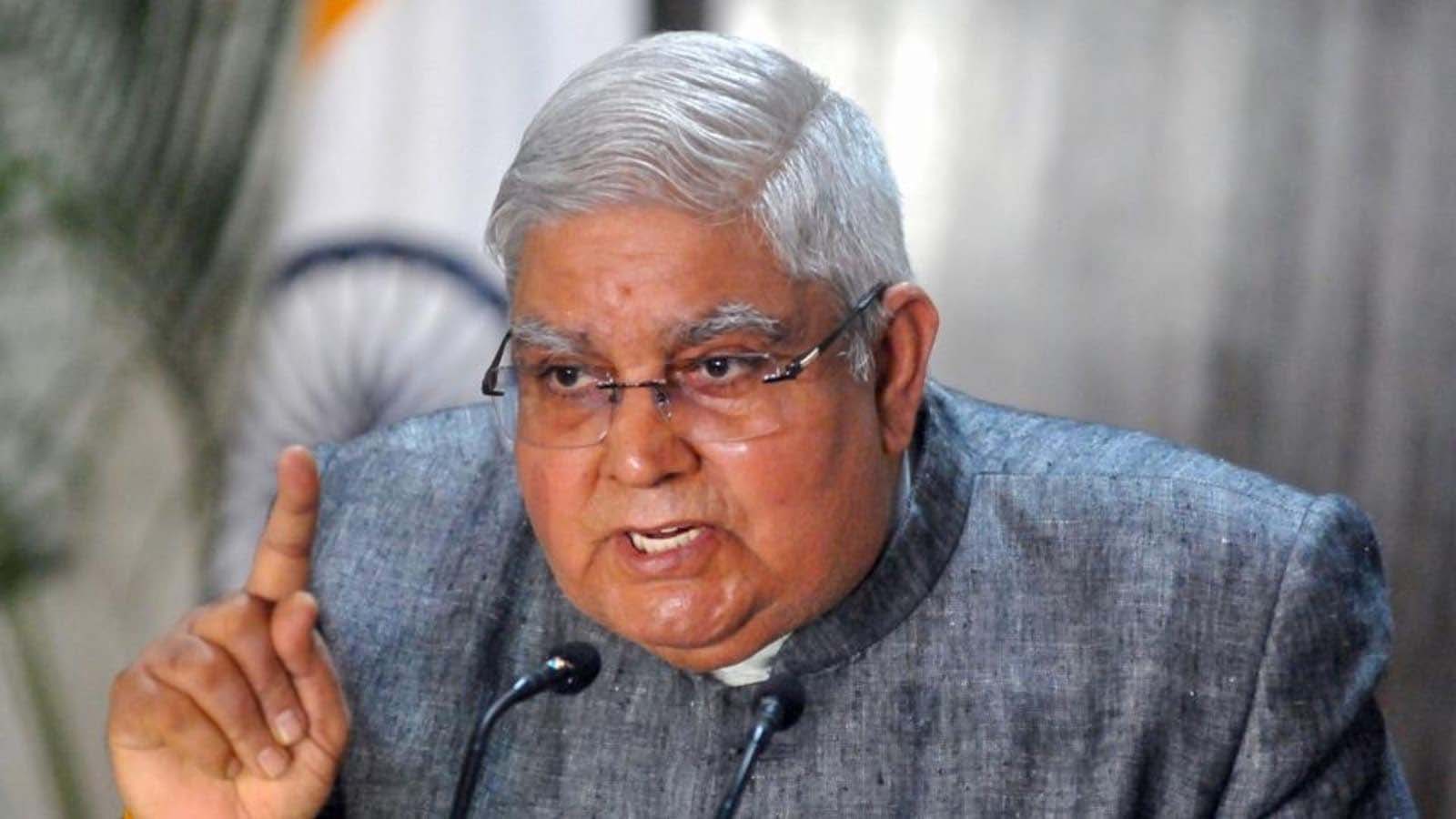Vice-President Jagdeep Dhankhar entreated the corporate sector and esteemed public figures to ardently advocate for research and development endeavors. Such initiatives, he contended, would profoundly impact the nation’s economic trajectory and bolster its diplomatic influence. He underscored the imperative of fostering a societal ethos wherein each Indian prioritizes their physical well-being, characterizing the current national trajectory as a collective stride towards a ‘Developed India’ by 2047.
Addressing the 18th anniversary celebration of the ICMR-National Institute of Traditional Medicine, the vice-president articulated, “We find ourselves amidst a transformative epoch. India, home to a substantial fraction of humanity, has transcended its former status as a dormant force. No longer can it be perceived as a nation bereft of potential. It is now an ascendant force, and its ascent knows no bounds.”
Reflecting on his tenure in parliament and his ministerial role in 1991, Dhankhar reminisced about India’s economic landscape, which, in 1990, paled in comparison to the financial prowess of London and Paris. “Consider our current standing,” he remarked, “as the fifth-largest global economy, surpassing the United Kingdom, erstwhile colonial rulers for over a century. We now eclipse France, with the prospect of surpassing Japan and Germany looming on the horizon. Truly a monumental feat.”
Moreover, Dhankhar emphasized the imperative of not only combatting diseases but also addressing their origins. He advocated for a pronounced emphasis on preemptive measures and disseminating existing knowledge. “A cultural paradigm shift is imperative,” he asserted. “Every Indian must prioritize physical fitness and well-being, as our nation collectively strides towards a Developed India by 2047. You all play a pivotal role in this endeavor. Your vigor must be unwavering. Once achieved, our growth knows no bounds, transcending even the confines of space.”
Highlighting the pivotal role of research and development, Dhankhar appealed to corporate entities and public figures to provide unwavering support. He stressed that such investments would not only spur economic growth but also enhance diplomatic influence.
“In our battle against COVID-19,” he recalled, “India extended support to over 100 countries. They hailed India as a steadfast ally, extending assistance even as we grappled with our own crisis. Thus, I implore the corporate sector to utilize their Corporate Social Responsibility initiatives to bolster research, development, innovation, and startups in these domains. It will serve us immeasurably.”
Furthermore, the vice-president extolled India’s rich legacy of traditional medicines, encompassing Ayurveda, Siddha, Unani, and Yoga. He hailed these practices as testament to the profound wisdom of our forebears, integrating science, philosophy, and spirituality to achieve holistic well-being.
Asserting the nation’s visionary leadership, Dhankhar opined, “Our strides in various domains—be it space exploration, infrastructure development, or defense—are indicative of our capabilities. It behooves us to engage every village in the noble pursuit of fostering health consciousness and awareness.”
Concluding his remarks, Dhankhar lamented the prevalence of modern afflictions such as depression and stress, attributing them to a departure from cultural moorings. “Effective communication,” he posited, “lies at the heart of mitigating such challenges.”









